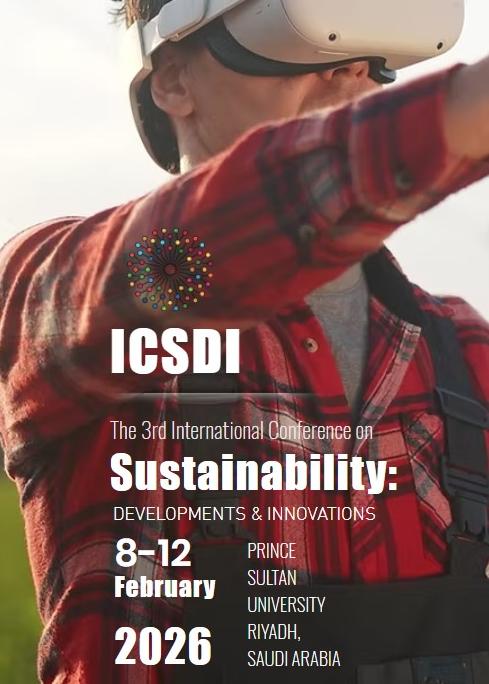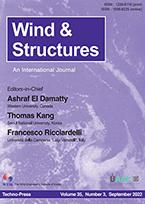CALL FOR Tutorials and Demonstrations: 3ed IFIP Cloudification of the Internet of Things 2017, November 8-10, 2017, Brussels/Belgium
IFIP CIoT 2017
- URL: http://www.ciot-conference.org/commitee.html
- Event Date: 2017-11-08 ~ 2017-11-10
- Submission Date: 2017-07-02
- Location: Brussel, Belgium
Computing Systems Remote Sensing
CALL FOR Tutorials and Demonstrations
====================================================================
The third edition of IFIP
Cloudification of the Internet of Things 2017 (CIoT'17)
November 8-10, 2017
Brussels/Belgium
http://www.ciot-conference.org/
Tutorial Submission: July 2, 2017
Demo Submission: September 18, 2017
====================================================================
The organizing committee of the Cloudification of the Internet of Things 2017 conference (CIoT'17) is seeking proposals for half-day (3 hours) tutorials focusing on the conference topics of interest including IoT, 5G, SDN/NFV, Fog and cloud computing technologies. In addition, CIoT’17 invites the submission of prototype demonstrations of novel applications and systems based on IoT and cloud services. The conference will provide the opportunity to showcase demonstrations that address the challenges of IoT systems, and allow you to maximize the impact of your research by engaging with highly skilled researchers and industry experts. Demonstrations are expected to showcase working systems, novel applications and disruptive ideas.
More details about the format, the content and the submission of both Tutorials and Demonstrations proposals are available through the following link: http://www.ciot-conference.org/callfortutorials.html
Important Dates for Tutorials
=============================
Tutorial proposals due: July 2, 2017
Acceptance notification: July 22, 2017
Final camera-ready material: October 25, 2017
Important Dates for Demos
=========================
Submission deadline: September 18, 2017
Acceptance notification: September 25, 2017
Camera ready: October 2, 2017
Submission Guidelines for Tutorials:
===============================
The Tutorial proposal must include the following elements:
1. Title
2. Tutorial length: half-day (3 hours)
3. Names, affiliations and short biographies of the speakers
4. Abstract (1 page)
5. Intended audience (half a page): a brief description of the background required by the tutorial attendees.
6. Tutorial content (3 pages max): a detailed description of the tutorial content. It should clearly highlight the relevance and timeliness of the addressed topic, the goal of the tutorial, an outline of its content, and an explicit description of any hands-on activity that is expected to be performed by attendees, if this is the case.
7. Any specific logistic needs for the possible hands-on activity to be performed by attendees (e.g., power supply for attendees' laptops, network connectivity, etc.).
8. Materials (1 page max): a description of the materials that will be provided to the tutorial's attendees (e.g., slides, code snippets, tools, virtual machine images, etc.).
Proposals should be submitted through the EDAS web site at https://edas.info/N23586 . Please free to contact the Tutorial Co-Chairs if you have any questions.
All tutorial proposals will be separately evaluated by the tutorial co-chairs, who will then rank the proposals and make the final selection. Upon acceptance, speakers for the tutorials will have to sign a commitment to attend the conference. The final materials for the tutorials (e.g., slides, documents, virtual machine images) must be submitted to the tutorial co-chairs by email on October 25th, 2017.
Submission Guidelines for Demos:
===============================
Authors are invited to submit a demo proposal in the form of a 2-page paper following the IEEE conference double-column format. If possible, include an illustration of the demo system architecture and early results. The demo proposals will be reviewed according to the following criteria:
- Novelty of the research contribution,
- Potential interest and impact to the audience, and
- The quality of the implementation and the presentation
Demo papers will be peer-reviewed and should be submitted via EDAS at https://edas.info/N23586.
At least one author of each accepted demo must register to the conference and present the demo at the scheduled demo session(s). Please feel free to contact the demo Co-Chairs if you have any questions regarding the demo content or setup.
Demo co-Chairs
==============
MarcOlivier Pahl (TUM, Germany, pahl@net.in.tum.de)
Alberto Schaeffer-Filho (UFRGS, Brazil, alberto@inf.ufrgs.br)
Tutorial co-Chairs
==================
Mohamed Faten Zhani (ÉTS, Canada, Mohamed-Faten.Zhani@etsmtl.ca)
Walter Cerroni (University of Bologna, Italy, walter.cerroni@unibo.it)
Steering Committee
==================
Guy Pujolle (UPMC, France)
Raouf Boutaba (University of Waterloo, Canada)
Hary Perros (NCSU, USA)
Yutaka Takahashi (Kyoto University, Japan)
Nadjib Aitsaadi (ESIEE Paris, France)
Nathalie Mitton (INRIA, France)
General Chairs
==============
Nadjib Aitsaadi (ESIEE Paris, France)
Chris Blondia (University of Antwerp, Belgium)
Harry Perros (North Carolina State University, USA)
TPC co-Chairs
=============
Ilhem Fajjari (Orange Labs, France)
Amel Achour (CETIC, Belgium)
Publicity & Publication Chair
=============================
Abdulhalim Dandoush (ESME Sudria, France)
Organizing committee Chair
==========================
Aziza Lounis (DNAC, France)














